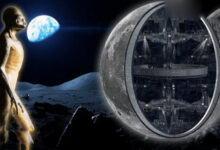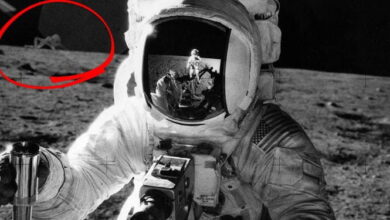Elon Musk Reveals The Terrifying Truth About Area 51 – You can’t believe it
In recent remarks that have reignited public fascination with UFOs and extraterrestrial life, Elon Musk has hinted that Area 51, the mysterious military base in Nevada, may hold secrets far beyond what the public has been led to believe. Known for his role in advancing space exploration through his company SpaceX, Musk’s comments suggest that hidden within the government’s most secretive location could be evidence of extraterrestrial technology — and possibly life itself.
For decades, Area 51 has been the epicenter of UFO sightings and conspiracy theories in the United States. Officially, the U.S. government has downplayed the base’s role, claiming that it is primarily used for testing advanced military aircraft. Yet, speculation continues to swirl around the site, with rumors that it houses alien spacecraft, and that the government is suppressing groundbreaking discoveries.
Now, Musk’s recent statements have injected new energy into these theories. By suggesting that the secrets of Area 51 may go beyond mere military technology, Musk, a prominent figure in the fields of space exploration and technology, has stirred the imaginations of UFO enthusiasts and skeptics alike.
Elon Musk’s words carry significant weight, particularly because of his status as a visionary entrepreneur who has consistently defied expectations. As the CEO of SpaceX and Tesla, he has played a critical role in pushing the boundaries of space exploration and clean energy. His credibility and influence make his comments on Area 51 more than idle speculation; for many, they seem to offer a glimpse into deeper truths about what lies hidden behind the veil of government secrecy.
Musk’s statements challenge the traditional narrative, opening the door to the possibility that the government may be withholding information that could revolutionize our understanding of both technology and extraterrestrial life. If anyone has a valid perspective on the potential existence of alien technology, it’s someone like Musk, whose work in space exploration positions him as a leading expert in the field.
If Area 51 does indeed harbor advanced extraterrestrial technology, the implications are staggering. Imagine the possibilities: revolutionary breakthroughs in space travel, new energy sources that could power the world, and a profound shift in how humanity views its place in the universe. These discoveries could accelerate Musk’s vision of making humanity a multi-planetary species, enabling rapid advancements in colonizing other planets like Mars.
One of the most tantalizing possibilities is that alien technology might provide the key to faster-than-light travel, allowing humans to explore distant galaxies and establish civilizations beyond Earth. This would represent not just a leap forward in science, but a redefinition of what is possible for humanity’s future.
Musk’s comments also raise important ethical questions about government secrecy. For years, the U.S. government has been tight-lipped about Area 51, fueling distrust and speculation among the public. If there are indeed secrets being kept — whether it’s extraterrestrial life, advanced technologies, or both — why hasn’t this information been disclosed?
This secrecy raises concerns about governmental control over information that could impact all of humanity. If alien technology exists and has been hidden for decades, it represents a potential breach of public trust, calling into question the ethics of keeping such monumental discoveries under wraps. Disclosure of these secrets could spark a new era of transparency, or it could lead to further conflicts over who controls this knowledge.
If extraterrestrial life or technology is indeed hidden at Area 51, the revelations could shift the balance of power globally. Countries may either collaborate on new technological advancements or begin competing for dominance in a new space race. The discovery of alien technology may not just reshape industries but also alter humanity’s understanding of its place in the universe.
The ripple effects of these discoveries could also extend beyond technological advancements. Philosophically, if humanity is not alone in the universe, such knowledge could challenge long-held beliefs and change how we view our role on Earth and beyond.
While Musk’s comments reignite old debates, they also prompt new questions about the ethics of disclosure, global power dynamics, and the future of humanity. If Area 51 indeed holds such transformative secrets, the implications for society and space exploration are profound.






